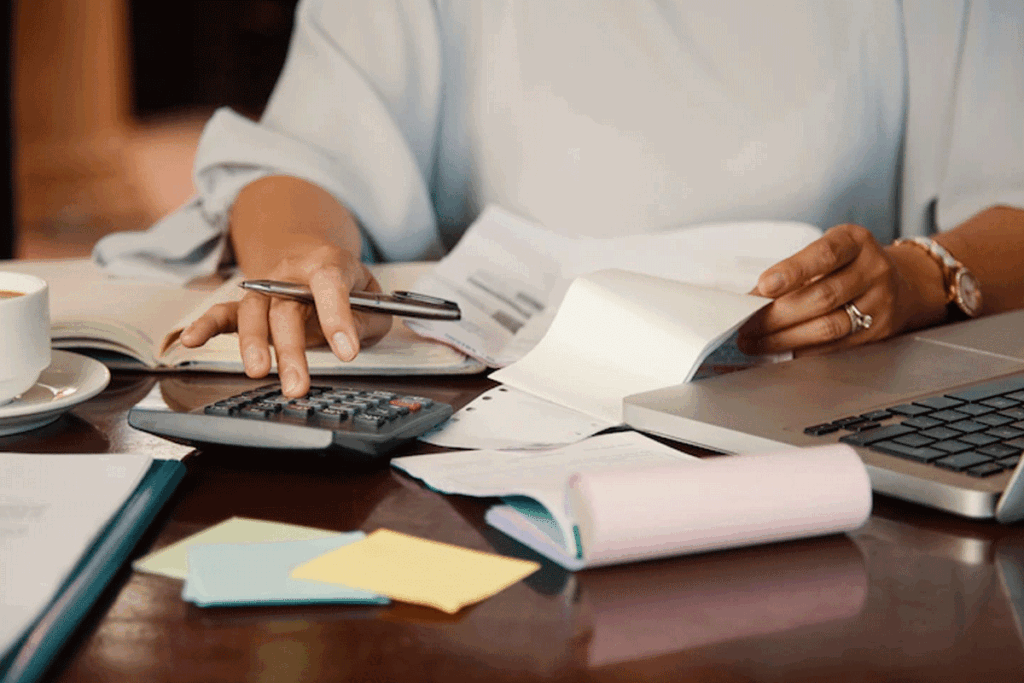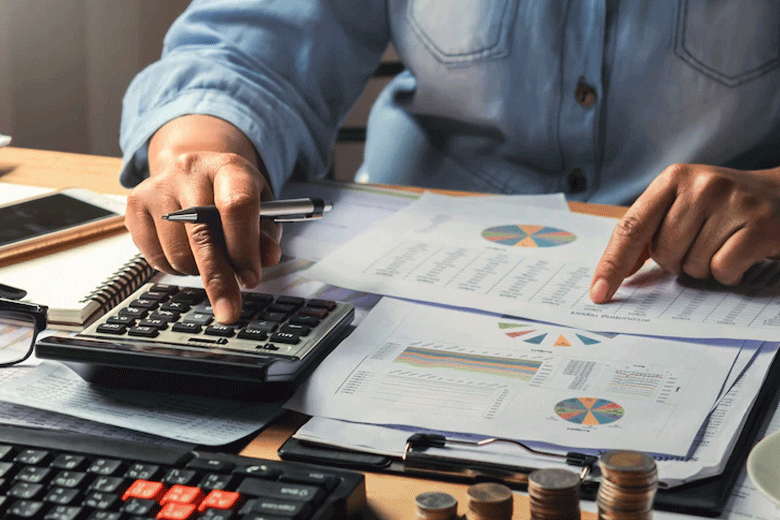
You’ve got a lot of debt and want to get out of debt, but how do you do it? If you’re like most people, your number one step is creating a budget. You will need to know how much money you receive each month and then figure out where that money goes. Once you know what’s happening with your finances, it’s time to start adjusting to work better for your situation—which means leaning on those numbers.
With the economy still in turmoil, getting our finances under control has never been more important. The most effective way this could be done is to create a budget. I’ve always struggled to keep to a budget. But when I have, my financial situation always improves. My problem is that I get lazy, stop making time to review my budget, and wing it with my finances each month.
Although I don’t start spending mega bucks, I’ve noticed that when I’m not following a budget, my financial situation deteriorates and doesn’t improve. And as men, to be successful, we need to improve continuously. So today, I’ll explain how to create a budget.
Why Create a Budget

Your income is likely limited when you’re a young and independent man, and you’re constantly living off your last dollar to survive. One tool that’ll help you get out of this situation is a well-thought-out budget. The benefits of having a budget are:
Puts You in Control
A man is always in control. But with the absence of a budget, your money controls you. So you need to be the man with a financial plan, not the man in debt up to his eyeballs.
Reduces Stress
If you don’t control a budget, you’ll not have a clue about how much money you have in your account, if any at all. The result is that you’ll end up living off your overdraft while constantly paying charges/fees. In addition, not knowing how much money you have in your account can cause a lot of unnecessary stress.
You don’t know if you’ll have enough money to pay the bills or the rent; you don’t know if you’ll have enough funds to cover an emergency should one arise. Having a budget lets you know exactly what’s coming in and going out, so you can concentrate on more important things.
Increases Confidence
You’ll feel more confident and in control when you understand where your money is going. Also, having a budget allows you to make decisions more quickly. Instead of struggling to decide on every purchase, you can just check your budget, see if you have enough money available for it, and then decide.
How to Create a Budget

Regardless of how your expenses and income compare right now, it’s time to get excited because you can easily change it. If it’s bad, you can make it so much better. If it’s good, then you can still make it even better. Here’s how to create a budget.
Calculate Your Monthly Income
Collect your pay slips together and determine how much you earn per month. If you’re self-employed or earn a bit of cash on the side, calculate a close estimate of your monthly revenue. You need to know the exact amount of money you have to work with before you create a budget.
Categorize Your Expenses
Make a list of all your expenses and split them into two categories; fixed and variable. Fixed expenses/costs are those that stay about the same each month. Fixed expenses include things like rent or mortgage payments, car payments, and loans. Variable expenses are those that you can fluctuate from month to month. Variable expenses include groceries, eating out, entertainment, and shopping for clothes.
Subtract your total fixed costs from your total monthly income/revenue.
The amount that remains is what you can use for your variable expenses. When your fixed expenses exceed your monthly income一you’re in trouble. So, if your income is $1,000 and your fixed expenses are $1,250, that means you spend an extra $250 each month that you don’t have, and we haven’t even covered your variable expenses yet. So cut the cable, sell your car, downgrade your cell phone plan, move in with your parents or get a roommate to reduce rent costs, etc.
Set Your Variable Expenses.
You now know how much money you have left over once you’ve paid your fixed expenses. It’s now time to create a budget for your variable expenses. Unlike fixed expenses, you have a level of control over your variable expenses, as they can differ from month to month. It’s an area that you can cut back on to gain more control of your finances.
Regardless of how you do it, it’s important not to try too hard because if there’s one thing we’ve learned over time, humans don’t always know what they want until they see it in front of them!
The two most important variable expenses are retirement and emergency fund.
A retirement fund is essential as we can no longer rely on our jobs or the government to fund it. Set aside a small amount each month. It soon adds up, and you’ll appreciate it in your older years.
Saving for retirement is the most important thing you can do to prepare for your later years. While it’s true that the U.S. government has been encouraging Americans to save for retirement since 1978, there’s still a lot of work to be done in this area. In fact, according to NerdWallet (a financial website), only about half of American workers are putting away enough money for their golden years—and even fewer are saving enough annually.
You should also budget an amount of money each month for an emergency fund. You’ll be grateful for this money when faced with an emergency such as sudden unemployment or car repairs.
For example, if you had to pay for your car’s repairs but didn’t have the money, this would be an emergency. Or if your house was broken into and robbed and there was nothing left but a few clothes, this would also qualify as an emergency.

Financial experts often recommend that we should be saving for three to six months of living expenses. So, if you suddenly became unemployed, you’d be able to cover your rent, mortgage, and other fixed bills for three to six months whilst looking for another job.
In addition to an emergency fund and a retirement account, you could also consider the idea of creating a budget for expenses that regularly come during the year; Christmas and birthday presents, vacations, etc.
The aim is for your expenses to be less than your total income. If they’re not, then you’ll need to adjust your expenses so they are. This may imply cutting back or cutting out things like going out for drinks every weekend. If you have any surplus cash, put it in your emergency or retirement fund.
Keep An Eye on Your Spending
Once you’ve created the budget for each month, you need to keep track of every single coin you spend to ensure that you stay within your budget.
Another method of keeping track of your spending is to put the money you budgeted into separate envelopes, depending on what the money is to be used for, such as ‘going out money’. You can only use the money in the envelope for that month. So, if you have a heavy night and spend all your ‘going out money,’ you’re not going out till the end of the month.
Even if that means setting aside just $50 per month at first, it may seem like an insignificant amount now, but trust me when I say that over time, these small contributions will add up quickly and help pay off those expensive credit card bills later on down the road when they’re due or late fees start accruing after missing payments several times over due dates, something is always better than nothing.
Review Your Budget
Every month, go over last month’s budget to assess how you did. You’ll be able to see where you did well and where you went wrong. After you review, create a budget for the next month.
Conclusion
We hope you now understand how to create a budget and you are now ready to use that knowledge in your life. But remember, a budget isn’t just something you do once and then forget about forever. Instead, it’s a way of thinking about money to help you set goals, understand your financial situation, and be ready for the future. This means taking control of your spending habits and putting them on autopilot so they become habits that will last for years!
